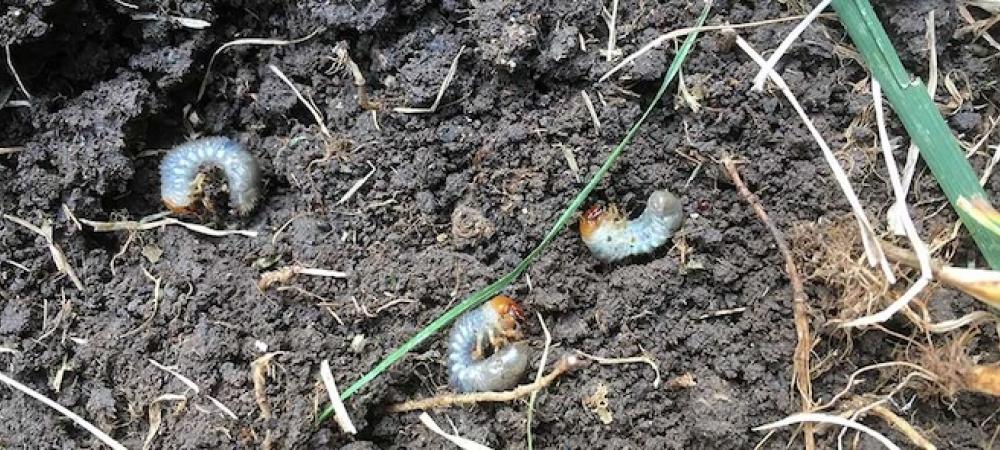Everything You Need to Know About Getting Rid of Grubs

If you're like most homeowners, then you probably want a healthy and beautiful lawn. But sometimes pesky grubs can get in the way of that goal. In this blog post, we will discuss everything you need to know about getting rid of grubs! We'll talk about what grubs are, where they come from, how to identify them, and how to get rid of them. So read on for all the information you need to keep your lawn looking great!
What are grubs?
Grubs are the larvae of various beetles, such as Japanese beetles, June bugs, and chafers. They are small, white, C-shaped creatures that live in the soil. Grubs feed on the roots of grasses and other plants, which can damage your lawn.
What do grubs turn into?
As they mature, grubs turn into adult beetles. The adult beetles then lay eggs on your lawn, and the cycle begins again.
Where do grubs come from?
Grubs come from the eggs that adult beetles lay on your lawn. The eggs hatch into larvae, which then grow into grubs.
What are the signs of grubs on the lawn?
There are a few signs that you may have grubs on your lawn. First, check for brown patches of grass. Grubs feed on the roots of grasses, so if you see brown patches, it's a good indication that grubs are present. Another sign of grubs is if you see animals, such as skunks or raccoons, digging around on your lawn. These animals are looking for food (grubs), so their presence is another indicator that grubs are present. Finally, lift up a piece of dead grass from your lawn. If the turf comes up easily or there are lots of roots, it's likely because of the grubs.
How to get rid of grubs naturally?
If you have grubs on your lawn, there are a few things you can do to get rid of them. One option is to use biological control, such as Bacillus thuringiensis (BT), which is a bacteria that kill grubs. BT is available in many garden stores and online. Another option is to use nematodes, which are tiny worms that kill grubs. Nematodes are also available in many garden stores and online. Finally, you can try using milky spore powder. This powder contains spores of a bacterium that kills grubs. You can find milky spore powder at some garden stores or online.
What is the best time to treat grubs?
The best time to treat grubs is in the late summer or early fall when they are young and vulnerable. This is because it takes a few weeks for the BT, nematodes, or milky spore powder to kill the grubs. If you treat them in the spring, the grubs will already be too large and will not be killed by these methods.
How often should I treat my lawn for grubs?
You should only need to treat your lawn for grubs every few years. This is because it takes a while for the population of grubs to build up again after being treated.
Is it too late to treat for grubs?
If you're noticing damage to your lawn, it's not too late to treat for grubs. However, you may not see results for a few weeks or even a few months. This is because the grubs are already mature and difficult to kill. You may need to treat your lawn multiple times before the grubs are completely gone.
How do you prevent grubs from coming?
The best way to prevent grubs is to have a healthy lawn. A healthy lawn is dense and has a deep root system. This makes it difficult for grubs to penetrate the soil and feed on the roots of the grass. You can also help prevent grubs by aerating your lawn and keeping it well-watered. Watering deeply and less frequently will encourage deeper root growth, making it harder for grubs to reach the roots.
Mowing your lawn regularly will also help prevent grubs. This is because mowing helps remove thatch, which is a favorite hiding place for grubs. Thatch is a layer of dead grass, leaves, and other organic matter that builds up over time. It can be difficult for water.
What if I still have grub on my lawn?
Yes, you tried everything. What if the grubs are still there on your lawn? That's when Southern Spray can help you. Being a locally owned and operated lawn care business in Tennessee since 1972, we have the best services for your lawn and advice for you. Next time you have a grub issue, give us a call right away!
